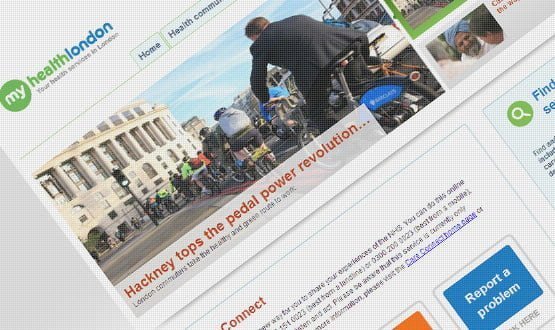EHI interview: Alan McDermott and Jane Barnacle
- 12 September 2013

Patient empowerment is central to plans to transform the NHS. ‘Unleashing the power of people’ is the name that has been chosen for the NHS technology strategy that is due out in December.
It has been chosen to promote the idea that patients who are more engaged in their own care and treatment choices will take some of the strain off the health service, allowing it to deliver better quality care at a time of dwindling resources and rising demand.
Central to supporting this idea is the creation of a modern customer service platform, through which the public can interact with the NHS in the same way that people interact with other, modern service industries.
Driving this forward is NHS England’s Patient and Information Directorate, led by Tim Kelsey and with four regional directors, leading teams focusing on four key areas of work; intelligence, strategic systems, patient voice and communications.
Alan McDermott
Alan McDermott is the regional director in the Midlands and East. He previously worked at NHS Blood and Transplant; a job that gave him some useful skills for his new role as it requires intelligence and public engagement to secure a stable supply of blood donors.
“It’s a fantastic opportunity to take technology, which sometimes can be conceived in very technical terms, and put it together with patient and public involvement,” he tells EHI about his role. “That demystifies the technology and improves outcomes.”
McDermott’s base is Cambridge, but his team covers a wide rural and urban area, including eight local area teams. These work closely with local health economies via their clinical commissioning groups and direct commissioning activities.
“The challenge at a regional level is to make sure we get that connection, with the national teams and the area teams working with CCGs and commissioning support units to make sure that information flows in both directions,” he says.
McDermott acknowledges there is a “certain amount of tension” in the role as the new NHS environment is built. There is a clear imperative to encourage local leadership and decision-making; yet commissioners are still expected to implement national priorities.
“That can be constructive because CCGs want to be clear about the value of any particular initiatives,” he claims. “Our role is to work with CCGs, listen to them, understand what it is they are grappling with – day to day – and their future and long-term aims,” he says.
“The secret is working with the CCGs and our area teams to recognise the value in the programmes we are looking to implement in terms of outcomes for patients. If we can’t get those messages across, clearly we have got a problem somewhere.”
Getting intelligent with intelligence
McDermott says some CCGs are already very active in promoting patient participation and paperless transactions and his team is looking to highlight best practice “so those who are less excited and enthusiastic can see where others have been able to take this forward.”
He wants to create a ‘pull’ from CCGs to adopt digital working, rather than rely on a ‘push’ from the centre, but says plans on how to create that ‘pull’ are still being worked through.
CSUs also have a role to play in their job of helping CCGs with strategic planning. Key to this is harnessing the power of patient involvement and feedback to transform services.
“All my experience is that if you are very open with your customers and the users of your service they will become incredibly powerful advocates of the service and very quick and intelligent about pointing out where issues and problems are,” he says.
“You just need to provide information about what’s happening in a time scale that’s relevant to them.” Involving patients more in decision-making will also take workload out of the system, he adds. “It’s not an easy task, but once you realise the potential, there’s a huge opportunity there.”
Jane Barnacle
Driving forward the patient participation agenda is the London regional director for patients and information, Jane Barnacle. She previously worked for NHS London to create what was originally a GP comparison website -myhealthlondon.
The site is rapidly expanding and recently launched a young people’s service called the Well Happy app, as well as a maternity channel and a dementia services map.
Attracting more than 40,000 visitors a month, it is a model for encouraging patient engagement and acted as a spring-board for Barnacle’s key programme of work: encouraging digital transactional services and patient participation on a national scale.
Barnacle already has a major milestone under her belt. Her team launched Care Connect this month as a pilot in 18 trusts in London and the North East.
Based on the 311 service in the US, it allows patients to go online, call, tweet or text their feedback on NHS services. Serious issues are passed on to the trusts involved to respond and all feedback is edited and published.
The service will ultimately become part of the Integrated Customer Service Platform being developed by NHS England, which is due to launch in November.
This will eventually allow people to booking appointments and do other online transactions, delivering “what people expect from any modern service industry,” she says.
“Myhealthlondon has been a very important piece of driving transparency in London. What Care Connect will do is move much more into testing participation, connecting patients to the right parts of the NHS and getting them participating in their care.”
Putting the patient into patient access
While acute trusts appear to have bought into the idea of harnessing online patient feedback, encouraging primary care to embrace another key piece of national strategy – providing patients with online access to records – is proving more difficult.
Barnacle’s team is working to develop the evidence base and work through the operational issues. “We know it can be done; it’s much more about helping practices and CCGs to see the benefits and to work with them on making some small operational changes they need to make to enable that to happen.”
Barnacle believes clinical commissioners have come into being with a strong sense of “wanting to transform services in a better way for patients.” But she acknowledges there are challenges in integrating this transformation into a CCG’s day-to-day business, given the many other things that these fledgling organisations have to grapple with.
While there are some contractual levers her team can pull, essentially it is relying on people buying into the ideas. “Our incentives are our relationships.
“That’s the biggest lever; the relationships we have with the local health economy,” Barnacle says, adding that he aim is to see today’s ‘innovations’ become part of the normal working of the NHS in the future.




